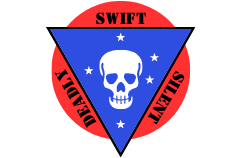This is the answer to a question I’ve gotten twice from the same reader. The first time was a couple years ago on another platform. He recently got back in touch and said he’d be interested in hearing my thoughts on military service. I’ll give you my thoughts and my biggest pros and cons. Keep in mind these aren’t in order of importance, I just wrote them as they occurred to me.
Also keep in mind that my experience was probably not typical. As I mention later in the article I absolutely believe in the concept of “make your own luck” but I also just got lucky with some things. I was in the right place at the right time for some of the things I was fortunate enough to experience. Your mileage may vary.
I also asked a friend – let’s call him John – for his benefits and disadvantages. He gave me an incredibly thoughtful response that obviously took some time to put together. I appreciate that more than he will know; time is the most valuable thing we have. His explanations of each of his pros and cons were perfect. John is out in the world right now, doing real work, making his generosity with his time even more meaningful. Thank you, friend. I truly appreciate your time and thoughtfulness.
I interwove his answers here with mine, and his answers lead me to my first benefit.
Benefit: Lifelong Friends
The military will give you the opportunity to make some incredibly close friends. First, it will expose you to a ton of people that you might not gravitate toward otherwise. People who – in real life – dress differently, talk differently, and look different than you will be thrust into your immediate vicinity. Shared danger, privation, exertion – all forms of shared hardship – can form incredibly close bonds.
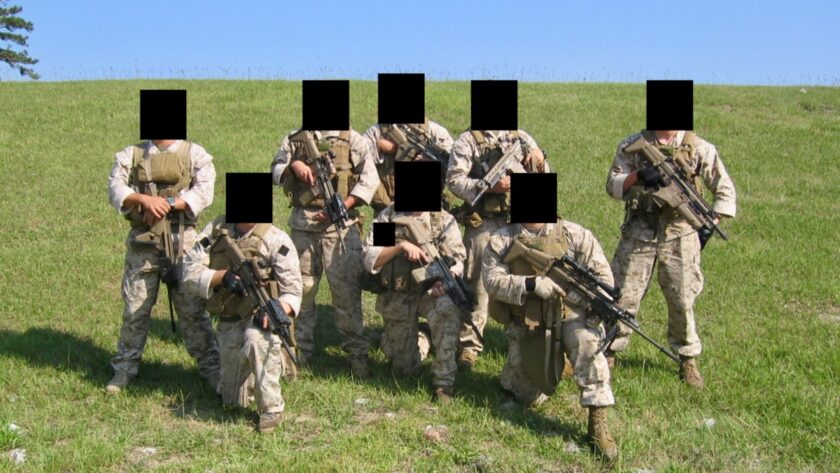
The strength of your friendships will probably be directly proportional to the hardship you share together. John and I don’t see each other on a regular basis. In fact, we’ve probably only averaged hanging out once a year or in the dozen years since I left the military, but he is one of my closest friends. Every time we see each other we pick right up where we left off. Friendships like these make every second I spent in the military – no matter how bad – worth it.
Edited 12/12/20: I’ve heard this one disputed recently, so I’ll offer my personal experience. I’m almost 40 years old. Of those years I spent eight in the military. It has been almost 13 years since I left the military – plenty of time to make other, lifelong friends. But despite my best efforts, I haven’t. The only friends I have that are that durable are from the military (and I’m a very outgoing, friendly guy who is genuinely interested in making friends). I’m not saying the military is a magic friend-generator, and I’m not saying you won’t have to work at it. Nor will all your military friendships last forever; people will fall away, and there will be a few people you’ll never want to see again. Military service does create the right conditions for building very strong friendships, though.
Benefit: Distance, Quickly
The military is great for removing you from a less-than-ideal environment or scenario. One day you are at home, and the next you are hundreds of miles away in a brand new environment. A lot of people join the military for this reason. Though I had zero doubt in my mind from a very young age at that I would join the military, this definitely played a factor in the timing of when I joined.
I’ve moved around since leaving the military. From east coast to west coast, north to south, and even a stint in the Midwest, and here’s what I can tell you: moving to a new area by yourself is hard. Despite what anyone says, it’s difficult to pick up and start over in a new city where you don’t know people. It’s very expensive and it’s hard to know exactly where to move in the new place. Guess what’s not hard in the military? They’ll tell you when you’re leaving, where you’re going, and who you’re going to link up with when you get there.
I joined the military and within two days was at boot camp (and took my very first airplane ride on the way). A few months later I was all the way across the country from where I grew up. I ended up spending two years there, followed by another (almost) two years in Okinawa, Japan. Even my closest duty station was still a double-digit hours’ drive from where I grew up.
A lot of guys love being close (or close-ish to home). For that matter, a lot of guys loved having a foot in both worlds. I never really understood that. I joined the military to put some space between me and home, and I went all in. The military is great for getting you away from your shithead, drug-addled high school friends, your abusive/overbearing/whatever family, or just about any other unhealthy environment.
Benefit: Sense of Humility
No matter what you do or how high you rise, there will always be someone better, faster, stronger, or smarter than you. You will bump elbows with truly great men. As well, you will occasionally be outranked by idiots who you will nevertheless need to abide by, work with, and work around.
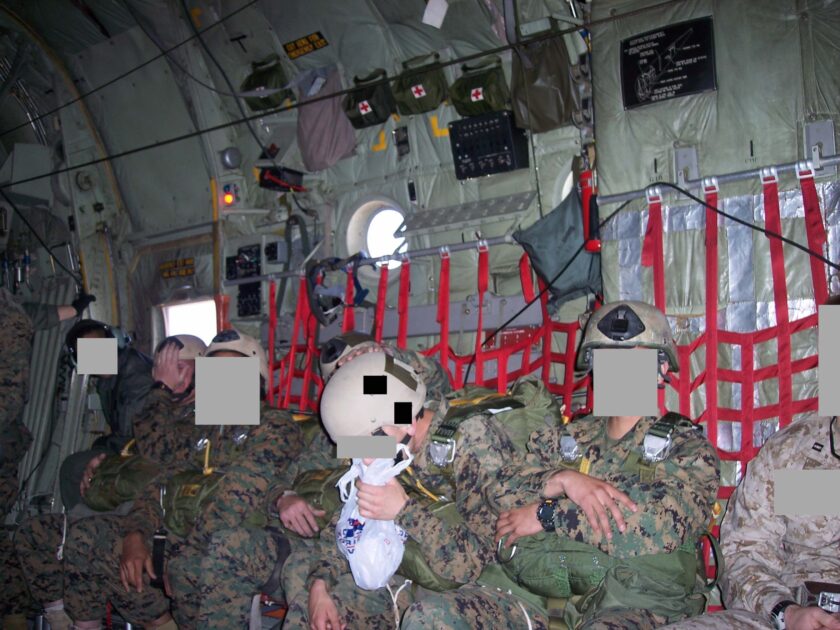
Benefit: Good Pay & Benefits
There’s this stereotype that military people are poor. I’ve got news for you: they’re not. Oh sure, a new enlistee at low rank with only a couple years in isn’t making a whole lot. By the time you’ve been in for six or eight years you’re probably living in a 2,500 square foot home with two brand-new cars in the driveway, a safe full of guns and an ATV or two in the garage (or whatever you’re into)(I’m also ignoring the fact that almost all of these people have crushing debt, but that certainly isn’t unique to the military).
The point is, the pay in the military isn’t bad. As a brand-new enlistee you’re probably only making $600 or 700 a paycheck. But, you have a place to live, a meal card, and 100% comprehensive healthcare. The only expenses you have are ones that you bring upon yourself like your phone and internet bills, car, car insurance, child support, addictions… As a single dude in the barracks you can bank some cash, or blow a lot of it if you aren’t careful. By the time you’ve got eight or 10 years in you’re probably making (keep in mind this is a wild guess) $50 or $60k a year? Maybe more if you have some pro-pays (jump, dive, SDA, demo, etc.) coming in. That’s not Wall Street money, but spent wisely that can go a very long way, especially in military towns.
Tolerance for a Lack of Control
You will learn your physical and mental limits, and that will stay with you the rest of your life. You will understand what it means to not be able to control your own destiny or make simple decisions, and that will serve you well when life situations are beyond your control and you must suck it up and deal with it. All of this will “turn down the noise” on difficulty for the rest of your life; you’ll know when it’s serious and when it’s not in a way that others who haven’t experienced hardship may never understand.
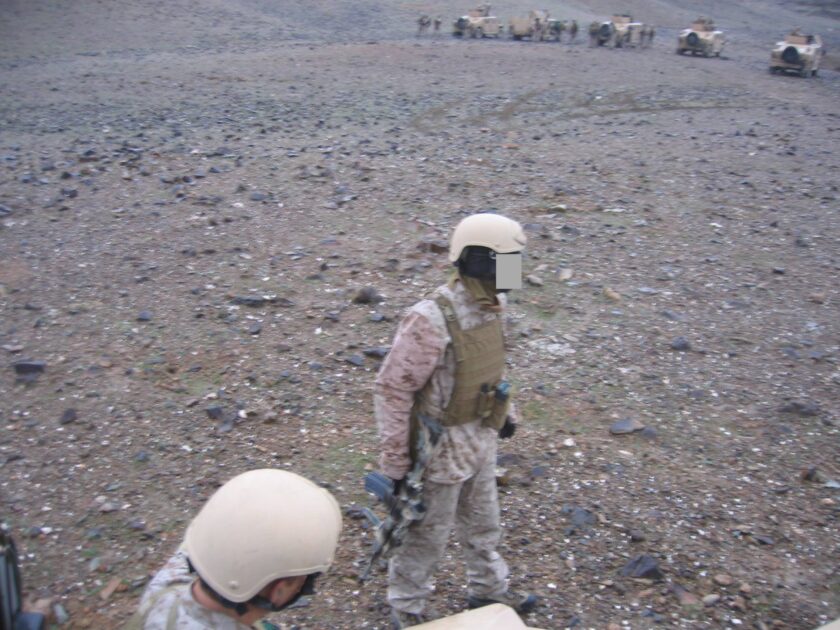
Benefit: Travel

One of my main goals in the military was travel and adventure. I wanted to see the world beyond town where I was raised and the three-hour radius around it. Not only did I get travel in its strictest sense (I did), I also got a lot of that great intangible, “life experience.”

Thanks to the military I’ve sipped Turkish coffee in Turkey, eaten pizza at street cafes in Sicily, and stayed as a guest at a remote Buddhist temple in Thailand. I’ve jumped from airplanes, picked my way across the floors of various oceans, and sailed across the Atlantic. Thanks to the military I’ve seen a range of humanity that is difficult to comprehend otherwise, from its absolute finest to inexplicable horribleness.

The military didn’t give me everything I wanted. There’s just too much to see and do in the world to expect it all from any job. Nor is the military the only way you can travel the world but it sure makes it easy. I’ve surely done more that I would have without the help of the military.

Self-confidence and understanding of your capabilities
You will know exactly how you measure up against other people. For good and bad. You’ll know what you are capable of and that will allow you to accurately judge situations you find yourself in and help you to decide whether to move forward or call for help. This also helps to turn down the noise because you’ll know keep within your limits more accurately and you may not panic when others do.
Benefit: Training
This one is incredibly important to me. My start in the training world happened in the military. Shooting is only one example, but it’s a good one. In one “CQB package” we spent several weeks, from 7 AM to 1700-ish on the flat range working rifle and pistol marksmanship and manipulations. After that, we started doing dry runs, then live-fire in the CQB house, shooting bullet traps for a couple weeks. Next, we switched to Simunitions and had live aggressors for a couple weeks. Then we switched to a reverse schedule and did hits on live aggressors at night, before moving into full mission profiles complete with planning, infil and exfil phases. All told our “shooting package” was 16-ish weeks long (I could be off about my platoon’s particular package but probably not by much. And if I am wrong, we crammed plenty of other shooting, breaching, and CQB into our workup, which would more than make up for any deficit), but it didn’t end there. We shot at least a bandolier of 5.56 and 100 rounds of .45 almost every day for the remainder of our pre-deployment workup. Think that won’t make you a pretty decent shooter?
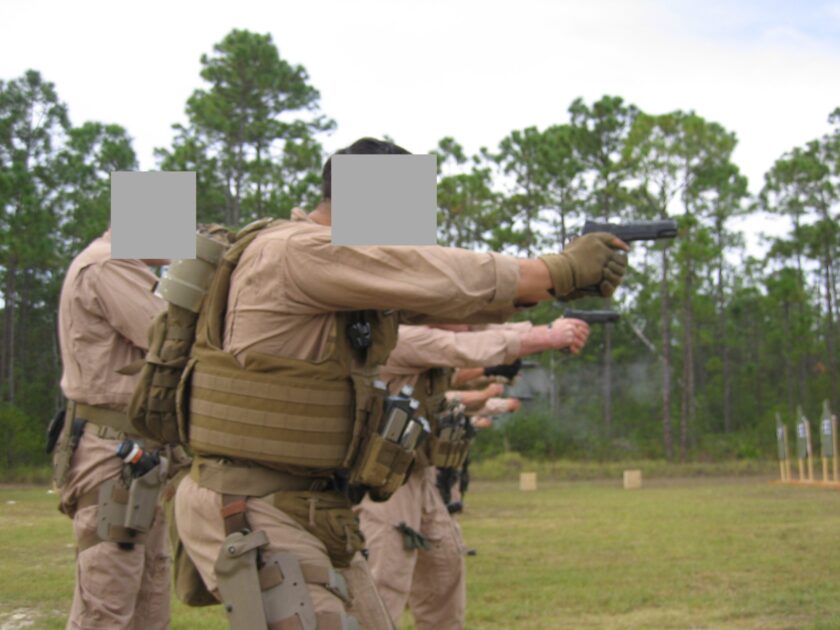
Now, I’m not implying that everyone’s experience will be like this. In all likelihood it won’t but I’m a firm believer in the axiom that, “you make your own luck.” If you sit around waiting for things to happen to you, whether in the military or not, good luck with that. I had to actively pursue many of the things I wanted, and your training will be a product of your motivation and what your job is. The point is that no matter what you want to be, you can probably get some training for it in the military. In some cases the military might be the best place; where else are you going to get paid to learn to shoot?
And look at all my other training. Most of it came directly via the military. The training that didn’t come from the military came from jobs that I wouldn’t have gotten had I not been in the military. Though again, keep in mind that experience is not typical…
Benefit: The Backstory
Even when I was a kid I knew that I didn’t want to be the guy sitting at the end of the bar saying, “man, I wish I would have done that” or worse, “if I woulda been there I woulda ___.” I wanted to be a member of that club. I was chatting about this with my friend Rich Brown of the American Warrior Show. I was having a hard time putting this into words when Rich nailed it: “I wanted to have a backstory.”
Rich and I both grew up on on 80’s TV and movies. Every character in the 80s – from John Rambo to John Matrix (Commando) to Thomas Magnum to the A-Team – had military backgrounds. I wanted to have a background, so I went and got one. Further propping that up, I remember reading an article in a gun magazine when I was a kid (I was a voracious consumer of gun magazines as a kid) that sparked my imagination. I ran across an article where the author casually mentioned that anyone in special operations could expect to pick up skills like foreign languages, fast driving, and lock picking. And guess what? He was right.
Do you have to be in the military to have a cool back-story? Do you have to be in the military to be extremely well-trained? No, but I don’t feel my story would have been complete without military service, without a rite-of-passage, without being able to talk about the military and know what I was talking about.
Neutral: Character Trait Development
I couldn’t decide if this was a positive or a negative, so I finally settled on it being pretty much neutral. Some people have this idea of the military being the place you send your kids to square them away.
The military attempts to develop sound character traits. While it can’t create character traits where they don’t exist, I believe the military does an OK job of nurturing some positive character traits you already have (but maybe suppressing others, like initiative). Most of the guys that were really awesome in the military would have been really awesome doing anything, though.
Let me put a slightly finer point on this: the military won’t “fix” you (or your wayward teenager). All the military can do is provide the opportunity for the cultivation of certain traits, not create them in you from whole cloth. If your kid got fired from his last three jobs at fast food chains, he will probably be a burden to his unit in the military. Once in a blue moon, though, he’ll go into the military and really kick-ass; the structure, discipline, and atmosphere can be really good for some people.
I owe a lot of the strength of my character traits to the military. Again, it didn’t give them to me but it did strengthen them. It showed me plenty of examples of them, both good examples that I strive to emulate and bad examples that I strive to distance myself from. It also gave me plenty of opportunities to test those values.
Disadvantage: Limited Control
A disadvantage of being in the military is limited control of your own life. It’s just part of the bargain, but you won’t get to pick where you live, when you move there, or when you leave your family behind for six months. Things that are “guaranteed” can change without notice. You don’t get to choose what you wear to work every day, and a host of other little things. This isn’t the worst thing for a young man or woman to spend a few years doing, but I would definitely chafe under it now.
What is potentially much, much worse is events like the coronavirus/COVID-19 thing we’re dealing with now. Guess who doesn’t get to go home and hunker down with the family? If you live in the barracks, guess how many preps your going to be able to store in your barracks room? Not much. Guess where your firearms are gonna be when the “balloon goes up”? Either in the armory, our out in town at a buddy’s house. In situations like this military leave is getting cancelled, bases are being locked down, and there are rumors of recently separated people being recalled. In emergencies military members (and families) have even less control over their own lives. I’ll be honest – that would suck.
Disadvantage: Myopic view of the world
You can tend to think nothing matters more than the military. You can start to look down on others and judge them based on your own experiences rather than theirs. You can really lose sight of the value of other things and people if you’re not careful. There’s a whole lot more to the world and life. Diplomacy, love, art, science, and culture, etc – these all have equal value and not everything comes down to physical struggle, nor should it.
This also ties right in with another disadvantage: an over-inflated sense of self importance relative to the general public. You chose to serve, therefore no one owes you a damn thing. You’re not better than anyone else just because of your service.
Disadvantage: Crippling Bureaucracy
The military is a bureaucracy. There is very little room for exceptions to the straitjacket of regulations. I’ve seen special operators leave the military because their service wouldn’t let them stay in their unit, doing their job. A job, by the way, that is constantly undermanned. Because everyone has to be treated equally, at lowest-common-denominator level, the military floats on an ocean of inflexible rules and regulations.
Disadvantage: Questionable Practices
This is a thing that drives me crazy about the military and goes back to the “limited control” bullet above. The military engages in some questionable practices. You’re exposed to a lot of carcinogenic substances. If the ventilation system in the shoothouse isn’t working, guess who’s still going to be shooting and inhaling lead dust all day? Guess who is going to be going home and washing their lead-laden clothes in the family washing machine? That’s right, you are. Guess who is going to be educating you that you shouldn’t go home and sit on your couch in your dirty flight suit? Probably no one.
There’s a lot of other ways guys get screwed in the long run. Ruck-running (running with a ruck on) isn’t the healthiest thing for your body, especially over the long-term. Done enough it can really destroy your knees, ankles, and back. How concerned is your squad leader with your “long-term health, Sally?” Probably not very, and in one way I get it. In another way if there are smarter ways to train…
This feeds into other stuff, too, like a reticence to go to medical. If you go to the aid station you’re “just trying to get out of PT.” End result? Stuff doesn’t get documented and when you have problems later on it’s harder to trace it to a source and figure out what the problem actually is. My advice is this: don’t be a malinger, don’t be lazy, be a team player. But don’t do all those things at the expense of actually taking care of yourself. Get to medical and get seen when you’re sick or injured.
Disadvantage: Ability to excel with mediocrity
This can cause you to lose the desire to move on. You can be very mediocre and still succeed, and even be lauded for your mediocrity. Don’t let that cause you to settle on your heels and stay put. The military after a few years can seem like a warm and comfy place, and that’s exactly when you need to consider getting out or doing some sort of broadening rotation.
John wrote that, and I’m going to expand on it just a bit. The military seems optimized for mediocrity. If you are bad (read: lazy, dumb, inattentive, etc.) enough, you will probably get weeded out eventually. This will probably happen around the E-5 to E-6* juncture or so. If you are exceptionally talented and motivated, you might stay in the military. Or you might have your spirit crushed, be punished for taking the initiative, get sick of being stymied at every turn, or simply wish to take your talent elsewhere.
Probably more people leave the military for this second reason than the first. This creates an environment where it pays just to not be noticed. Check the boxes, attend the grade-appropriate schools, get a “good enough” score on your PT test or whatever, and you’ll move up. If you’re just mediocre enough there’s no limit to what you can achieve in the military!
*Don’t misread that: there are a ton of “bad” people above the rank of E-6, but proportionally it’s probably a smaller number than the E-1 to E-5 crowd. Also keep in mind that I’m referencing the Marine Corps specifically, where there is a big dilenation between NCOs – E-4s and 5s and Staff NCOs – E-6 and up. The grade where this split occurs may vary from service to service.
Closing Thoughts
There are a whole lot of advantages and disadvantages that I didn’t cover here. Advantages like a college education (MGIB) and disadvantages like getting killed or wounded… to be honest none of those factored all that much to me then, and they don’t matter all that much to me know. Which illustrates how personal a choice it is to join the military. My article probably shouldn’t sway you one way or the other – just give you some things to think about. I will say this, though:
For me, the advantages far outweigh the disadvantages. The military absolutely changed my life, and the change was absolutely for the better. The work I do now would be nearly impossible for me to do if I didn’t have the military experience that I have, and I have no clue where my life would have gone without my time in the military. Again though, to each his own and you have to write that equation for yourself.
